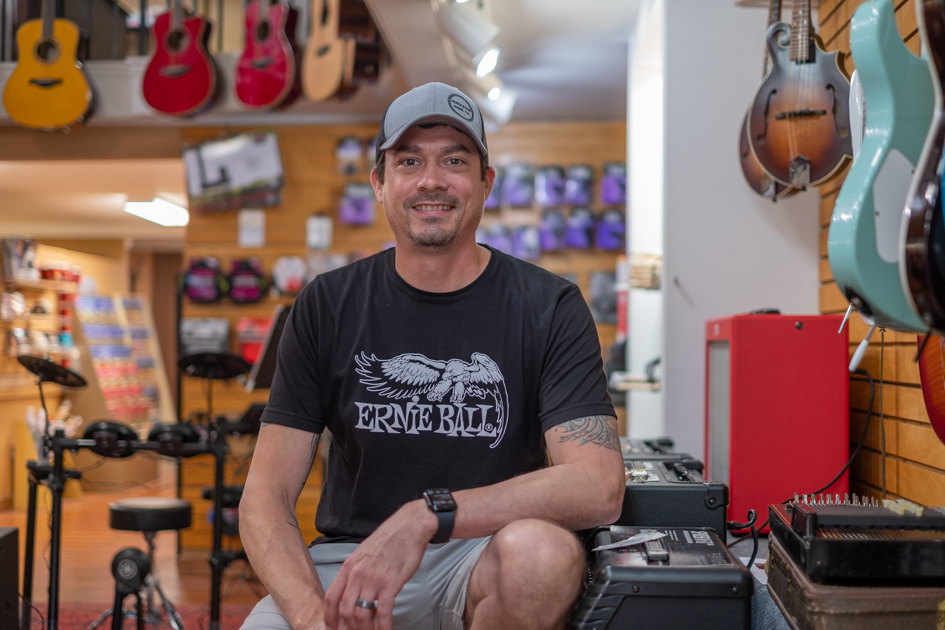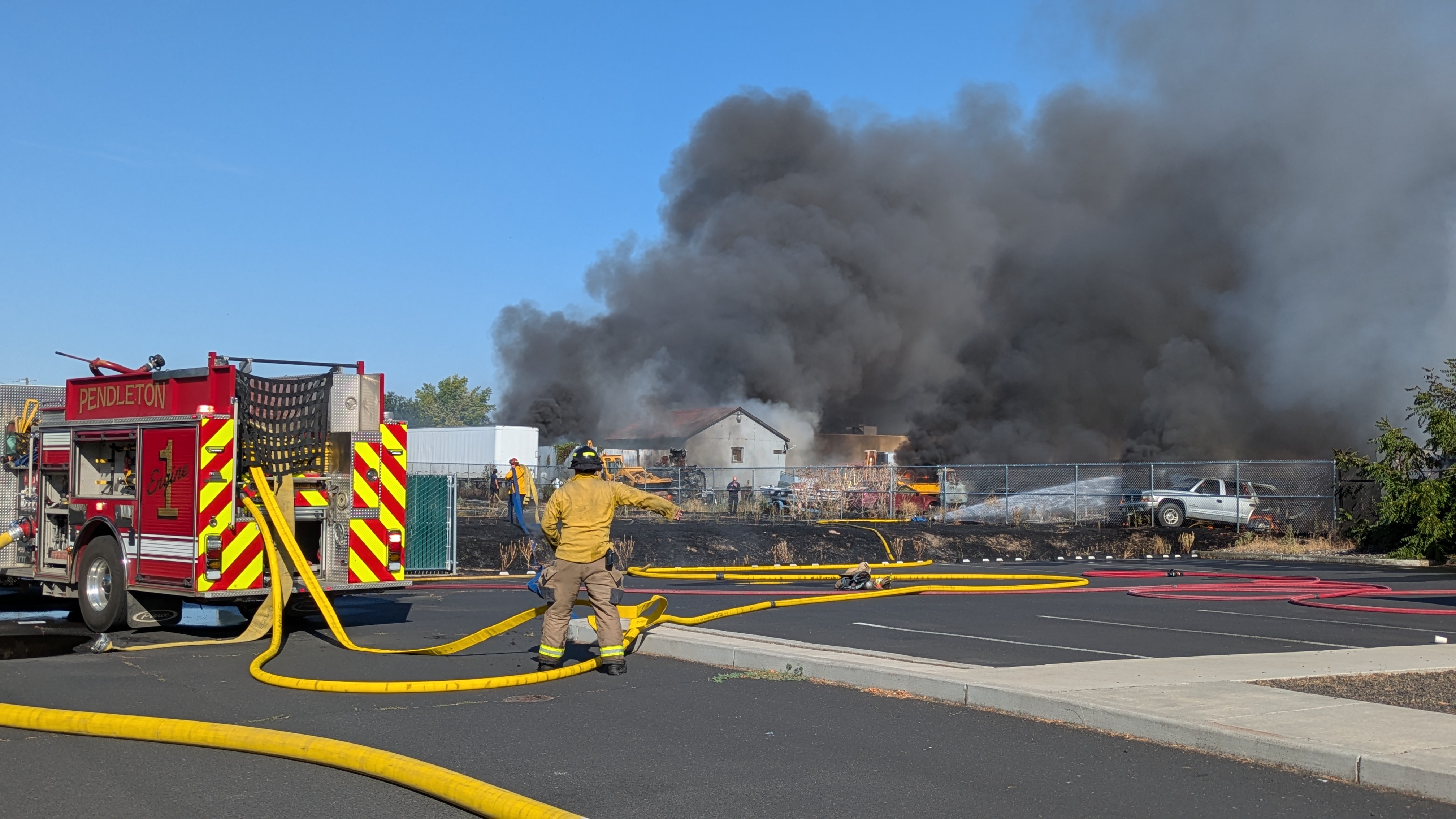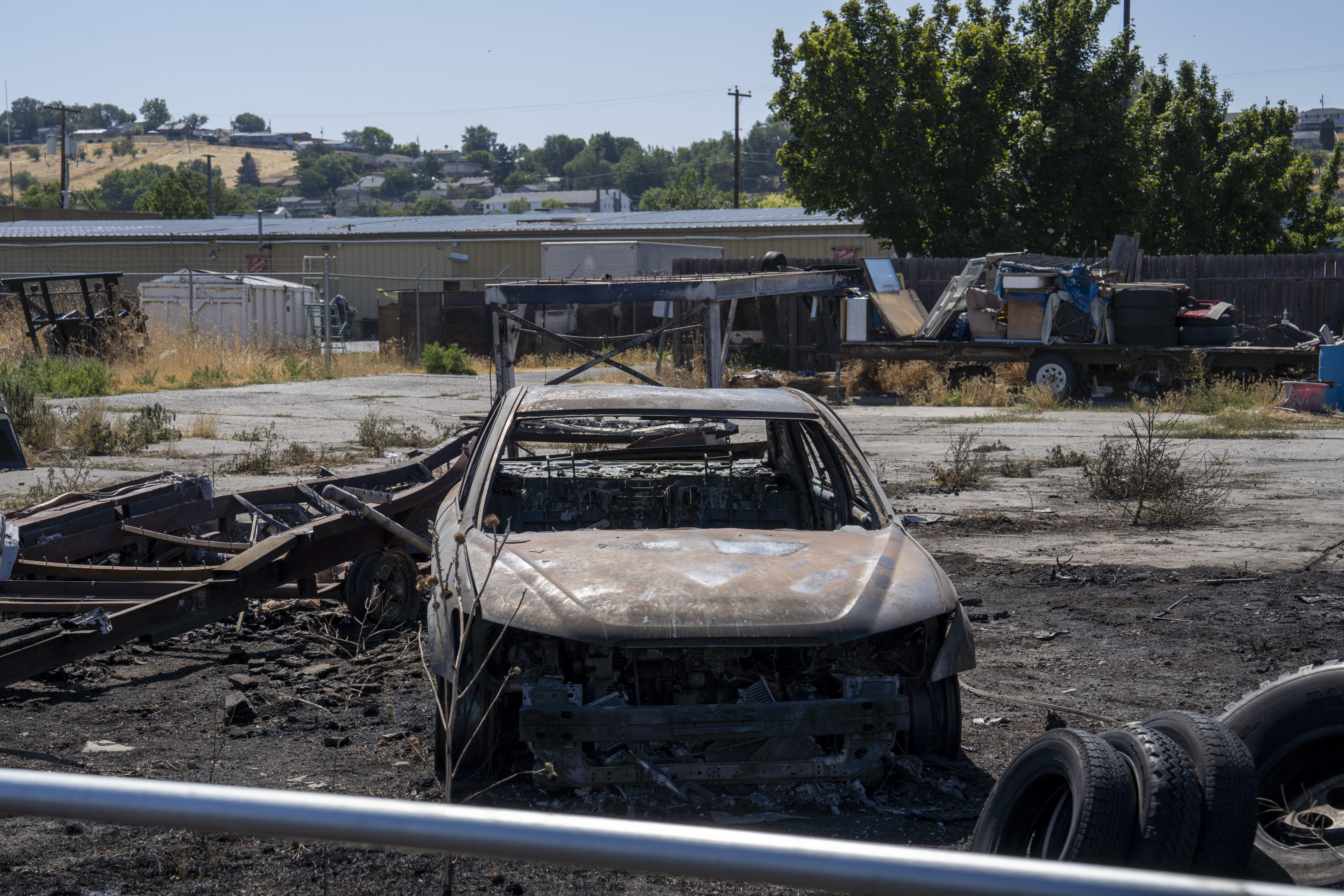County recycling continues to make progress
Published 7:00 am Tuesday, August 23, 2022

- Peter Ferre of the Friends of Wallowa County Recycling gives an update on recycling activities in the county to the Wallowa County Board of Commissioners on Wednesday, Aug. 17, 2022. The recycling center can now take nearly all plastics.
ENTERPRISE — Recycling services in Wallowa County continue to expand and now residents can turn in nearly all types of plastics, Peter Ferre told the Wallowa County Board of Commissioners at its meeting Wednesday, Aug. 17.
Discarded plastic is one of the major concerns of any recycling program, said Ferre, of the Friends of Wallowa County Recycling, who was there to update the commissioners on recycling work in the county.
Trending
“There’s enough plastic thrown away every year to circle the globe four times,” he said.
He said recycled plastic uses 20% less energy than making new plastic.
“For every ton of plastic that’s recycled it saves the equivalent of about 1,500 gallons of gasoline, which seems like a good idea,” he said.
He congratulated Mike Grover, who operates the recycling center on Fish Hatchery Lane.
“Mike’s done a great job of finding a new plastics buyer,” he said. “Now we’re able to accept virtually all plastic packaging. In the past, we could only accept No. 1s and No. 2s. … Now we’re able to accept yogurt containers, clamshells. We just can’t accept anything that’s rigid plastic, i.e. lids, automotive parts, bicycle parts.”
Rigid plastic, Ferre said, is “something you could break easily.” It also includes caps to jugs of milk, bleach and other containers because they’re made of a different kind of plastic that is small and stiff and gums up the machines that handles them.
Trending
He said plastic bags also remain unacceptable, but he’s working on getting Safeway — one of the main sources of such bags — to once again have a repository for the bags. He said it costs Safeway nothing to ship them, as they just put them on the trucks that deliver goods to the store and return them to where they came from.
Ferre also emphasized how recycling items such as paper and tin save water, as much less is used to recycle them than to make new paper and water. He also said recycling cardboard saves room in the landfill.
He said the price for recycled aluminum cans has gone up dramatically. Where they used to receive about $300 a ton, a recent load brought $1,000 a ton.
“It was a big deal for us to learn that the price was that high,” he said.
Ferre said volunteers at the recycling center have donated about 225 hours so far this year, but labor is always needed. He suggested the possibility of a work crew from County Corrections might be used, but no decision was reached on that idea.
He said efforts to promote recycling at the county’s schools also continue. A grant early this year paid for a part-time worker to handle recycled items from the schools, but that worker had to quit due to illness. The county is now looking for a replacement, he said.
On the money side of the recycling efforts, Ferre said his group continues to apply for and receive grants to help support it.
He said a measure in the Oregon Legislature also may prove of help, the Recycling Modernization Act, Senate Bill 582.
“As long as we as a county can continue to keep recycling operations going that we have, we’ll also need to express our interest to DEQ (the state Department of Environmental Quality) when they conduct their statewide needs assessment, which will probably be late this year or next year, and as long as we keep doing what we’re doing and express our interest in the program, even though we’re a small-sized population, we’ll have the opportunity to receive transportation money, which means our shipping costs might fully be reimbursed,” Ferre said. “We spend more money on shipping than all that we receive for all the recyclables we send out. So that’s a huge economic impact for us.”
Even donations from county residents help out. He said the community has donated about $2,100 that the Friends used to purchase additional bins.
“It shows people are interested,” he said.









